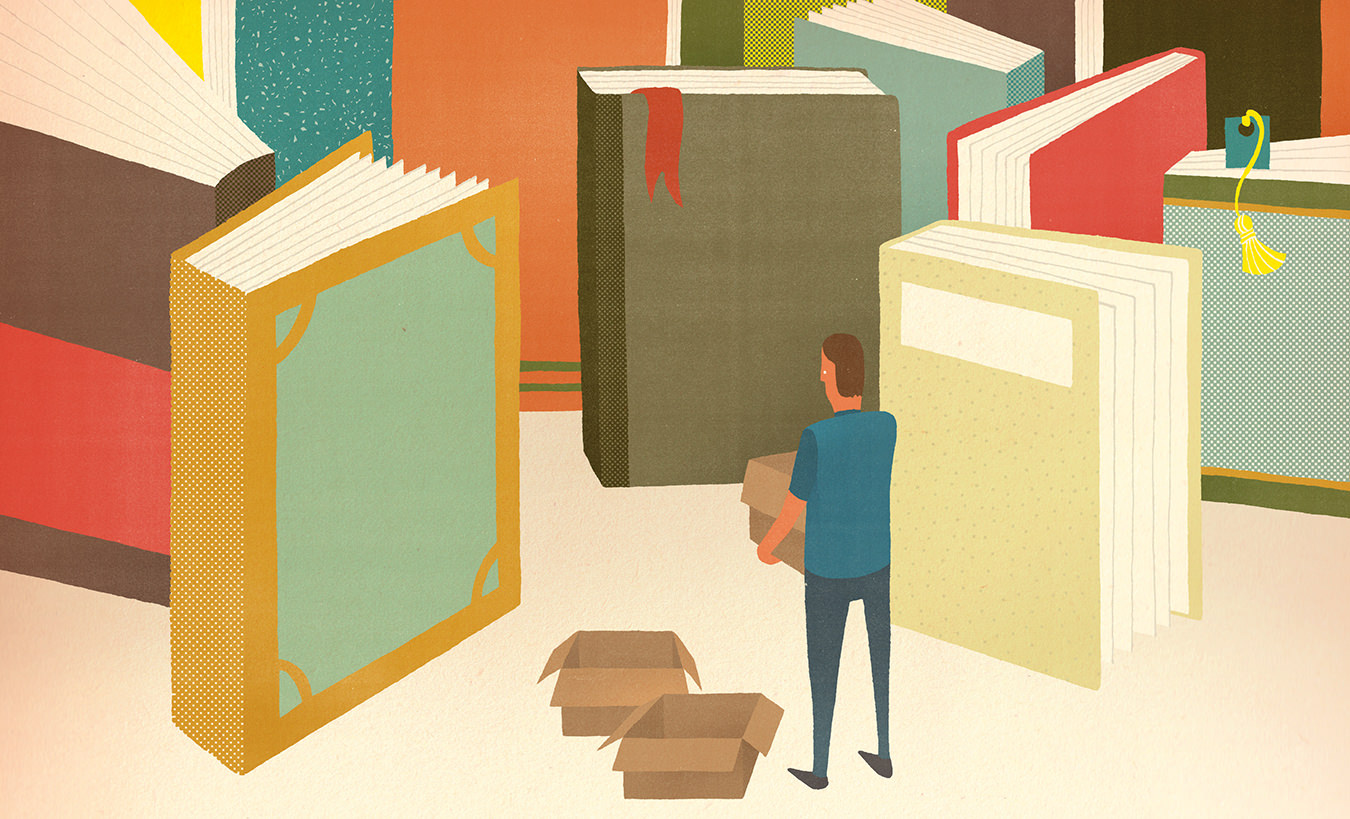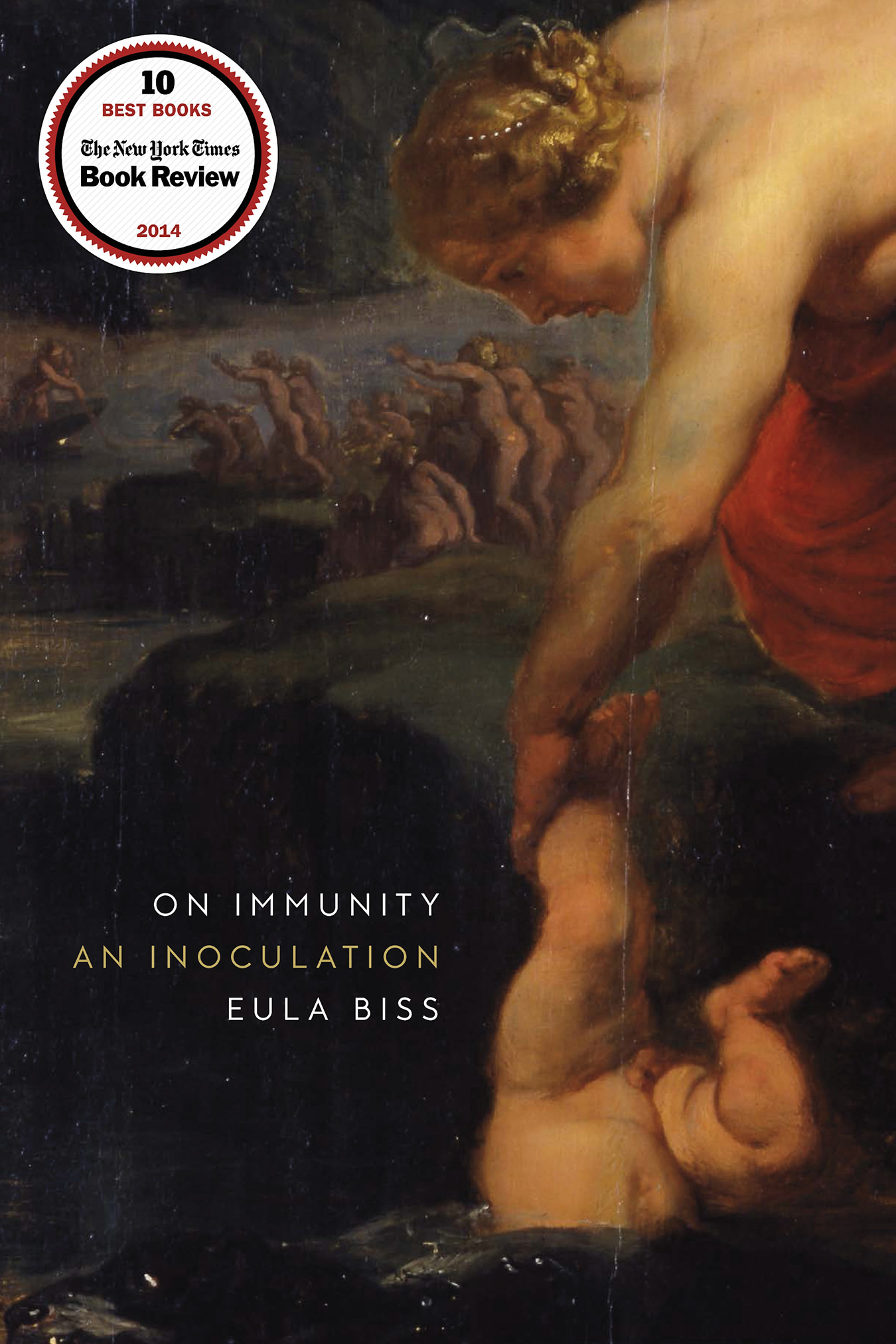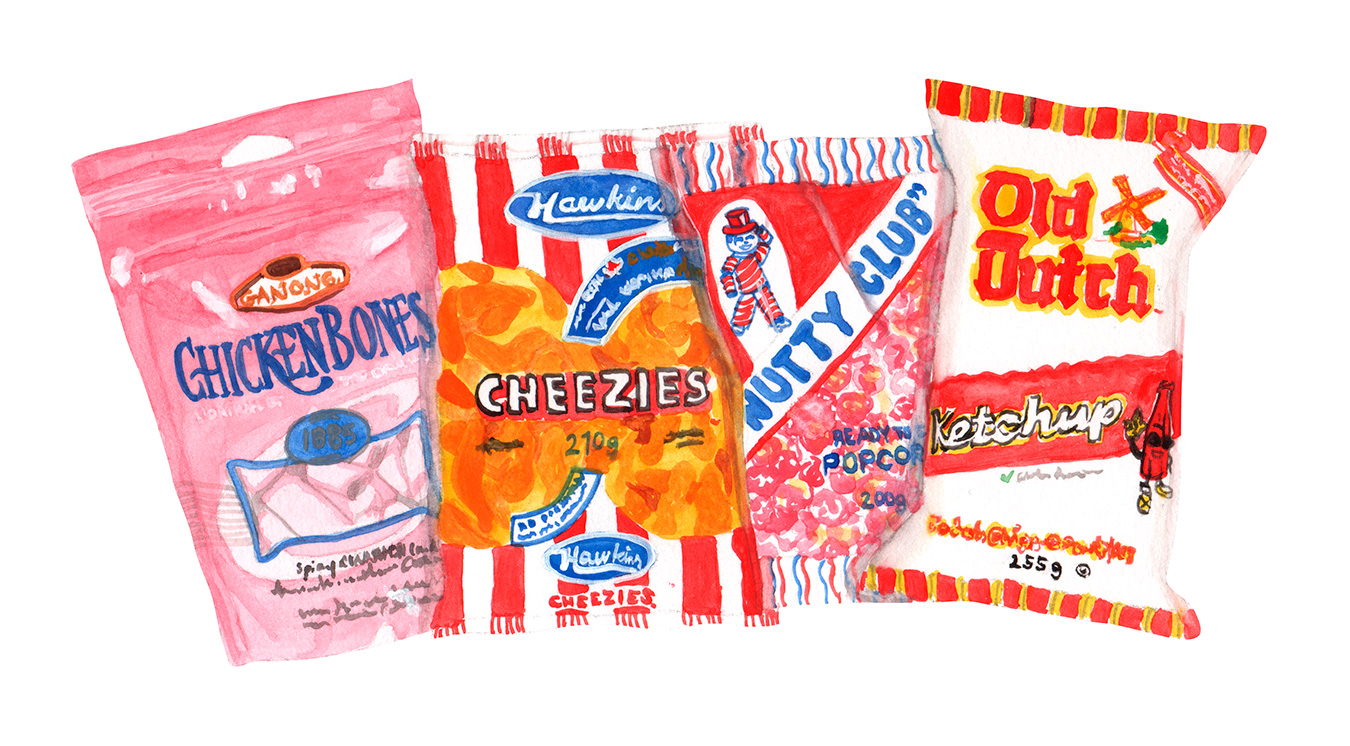-
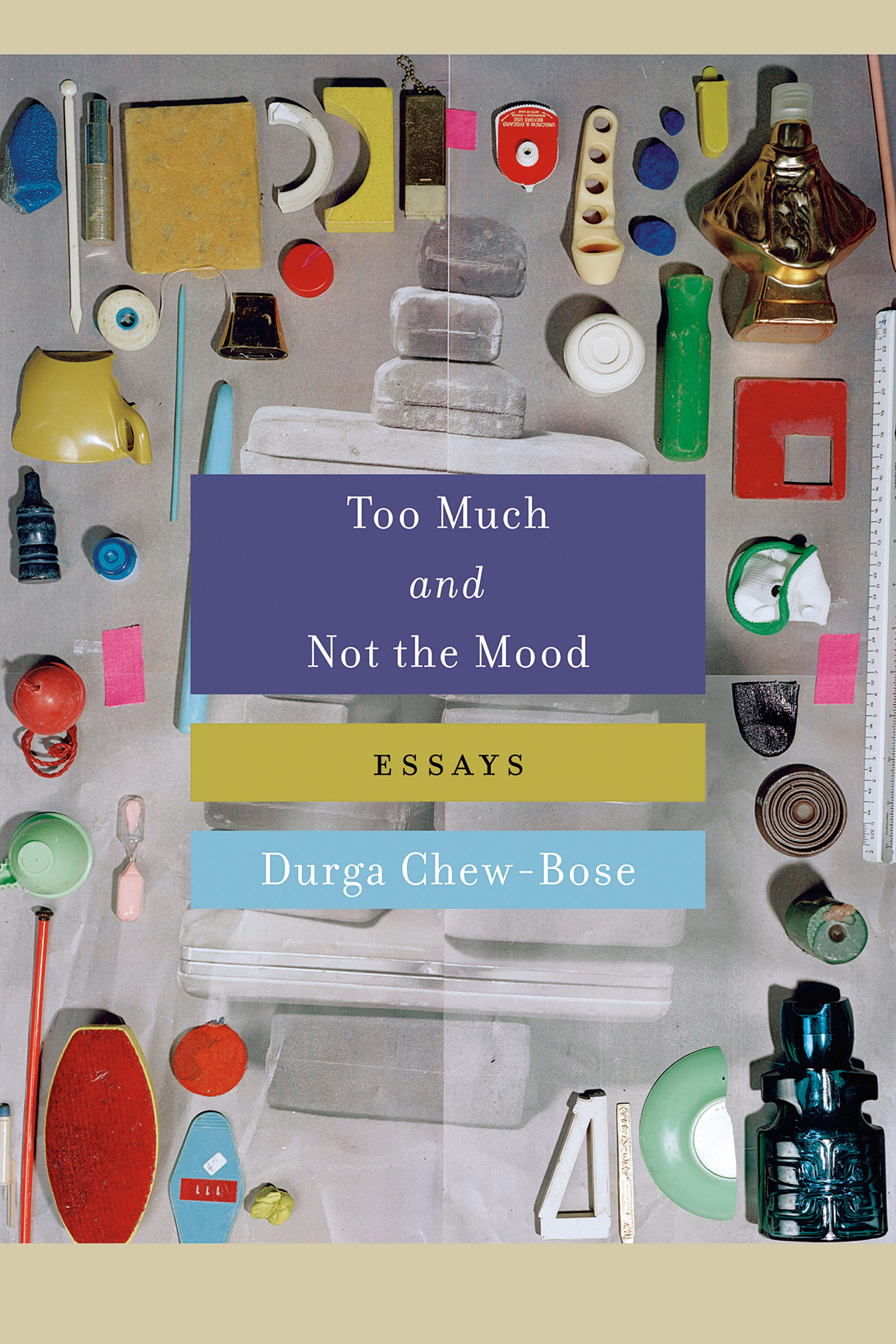
Too Much and Not the Mood by Durga Chew-Bose.
-
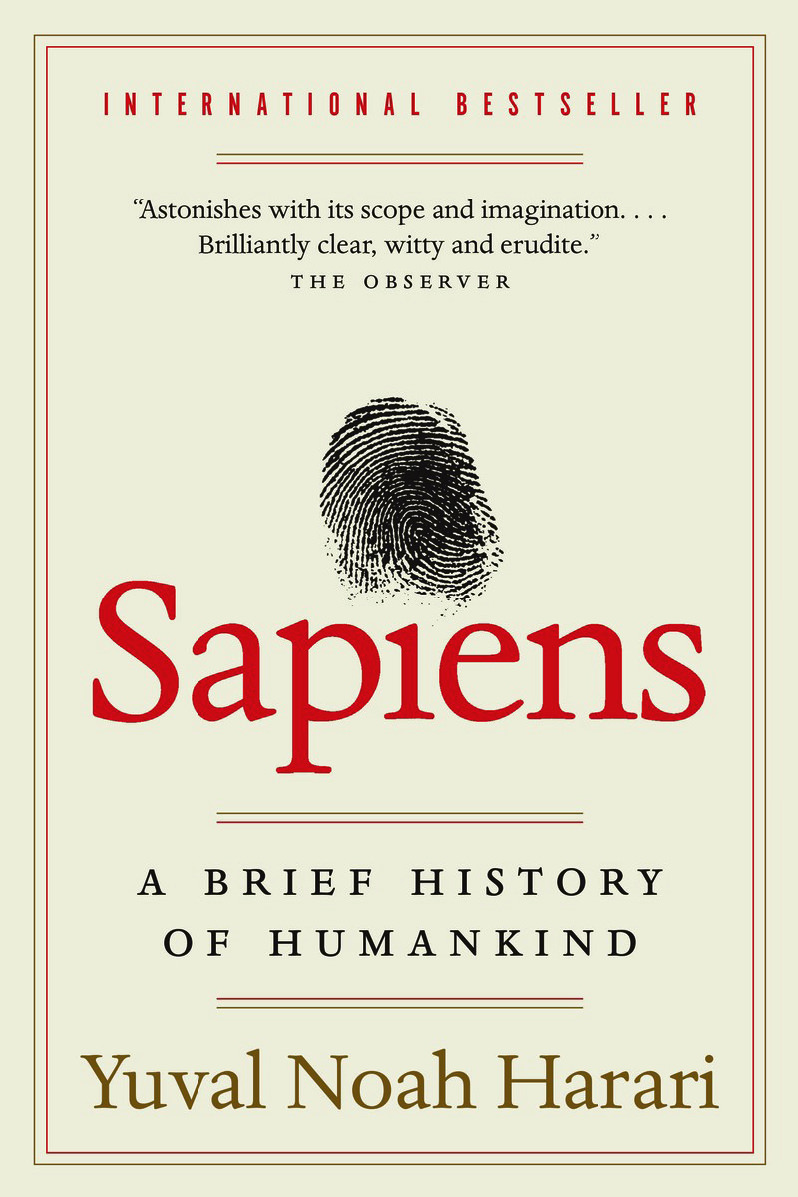
Sapiens: A Brief History of Humankind by Yuval Noah Harari.
FYI Books: Something Old, Something New
Books by Durga Chew-Bose and Yuval Noah Harari.
Too Much and Not the Mood by Durga Chew-Bose
Essays can feel like stand-ins for the increasingly rare act of letter writing—I mean a personal letter that is composed, considered, drafted internally ahead of time. One of the benefits of correspondence—as it used to be practised—was a sharpening of our sense of being at the business end of the present moment. Our lives had piled up into the very recent past and were now being manifest, in language, in the frozen present, to be shipped off into the not-too-distant future.
Reading Durga Chew-Bose, whose life, in the vast majority of its details, in no way resembles my own, was like pressing dulled senses against the deliriously thick, endlessly variegated texture of what is here on Earth with us.
Chew-Bose is a Montrealer who lived in New York for some years, and Too Much and Not the Mood is her first book, one that flags the arrival of a profound talent. These essays could be called personal, though they veer into film, books, history, friendship, race, and art. The prose is impressionistically dense, dazzling, quizzical, revealing, enamoured, and bitten with wonder. So many critics still labour under the glutinous delusion that their remit is one of dispassionate illumination, or alternately is a pugilistic, pitched tantrum whose point is to win at whatever cost.
The writer’s basic stance toward the essay is one of immersion—raw nerved, recursive, mistaken, in doubt, in love, from a distance, but always directed by an inner command to respond anew. Even formally, the collection has front ended what other essayists would save for the big dance number at the end. “Heart Museum” could function as Chew-Bose’s Ars Poetica, were she a poet. It’s a swirling, lyrical memoir-essay asking, at its core, what wonder is and how wonder remains active despite the world. Building a rapturous catalogue of moments her heart was set upon or set racing, “Heart Museum” wanders and wonders its way to a beautiful reckoning with her family’s history—from cinematography to old boyfriends to random family memories to writing. It’s the longest piece in the book, and it sets us off into a world of hurt, familial rupture and love, women’s friendships, and a writer’s life. Which of us doesn’t want to know what Durga Chew-Bose reveals sentence by elegant sentence?
The women I love re-enter the world so poorly. Their elegance lies in how summarily they’ll dodge its many attenuations, advancing alongside the world as if passing their fingers over the rails of a fence…
Sapiens: A Brief History of Humankind by Yuval Noah Harari
If Durga Chew-Bose offers us a slice of the immediate contemporary with passion and guile, Yuval Noah Harari backs off a few paces. Sapiens: A Brief History of Humankind, though it weighs in at a respectable 443 pages in paperback, must by definition be exactly that—brief. Having last read straight-up history covering approximately 45 years in medieval France, I kept looking at the cover of Harari’s book and asking, But how? I’m still not sure how he did it.
There’s the gem of the physiological repercussions we experienced after we acquired the big brain: weak necks, narrowed birth canal (some of us), back pain, etc. Then on to the dark question of our legacy of destruction and extinction—and all this before history has begun. We used to roam the Earth in small bands of no more than 150 individuals, sharing what was there to be foraged with at least six other species of human, likely more. They’re gone now. Then we made it to Australia and wiped out its megafauna, irreversibly altering that continent’s ecosystem. Next, the Americas; same again: hunt what was slow and burn down the rest. What is it with us? Untold millennia of digging up tubers and sticking the odd rabbit, then we overrun the globe and proliferate like wildfire.
One of the endearing qualities of Harari’s style of historical writing is his knowing when to admit we don’t know. Self-ignorant as we are, we still know far more about ourselves than about other species of human beings, including several that have become extinct since we first walked the Earth. Wherever there remains open debate, however, he admits as much. This isn’t one of the Big Idea books that needs to solidify its own thesis by way of cherry picking and putting on blinders. Were hunter-gatherers non-hierarchical, non-monogamous, and co-operative or patriarchal, suspicious, and centred on the nuclear family? It cannot yet, and may never, be proven either way. Harari’s method is to lay out, in wild and disquieting detail, how we went from bipedal animals, to organized settlements, to nation-states, then let us sit with the picture and draw our own sad conclusions.
One of the saddest conclusions being that our ability to read our own history is what may be at the root of our propensity—or at least capacity—for mass destruction. During what Harari (and others) calls the cognitive revolution, we acquired the mental ability to believe fictions. These are meant to refer to reality, but in fact wholly internal, they’ve allowed us to co-operate and to act in concert with each other, no matter how many of us there are. In order to go to war, we must all believe in the nation-state (fiction) or the same god (ditto) or freedom (again), etc., on into the 20th and 21st centuries, where you’ll just have to buckle up and keep a barf bag nearby.
Sapiens is a truly amazing feat. A blockbuster hardcover from 2014 that deserves a few million more readers, this book is for anyone who thinks they know where they came from, or wouldn’t mind being reminded of who they are.
_________
Never miss a story. Sign up for NUVO’s weekly newsletter.





